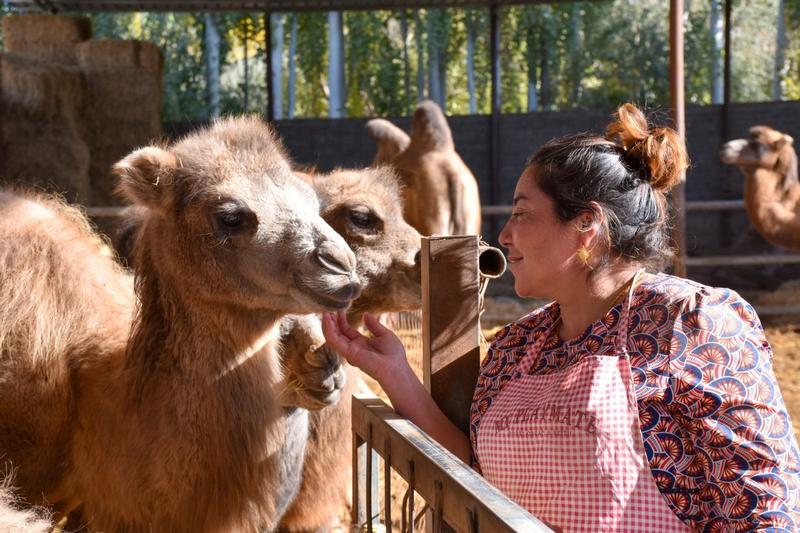 A breeder with her camels in Keping county, Northwest China's Xinjiang Uygur autonomous region, Nov 11, 2020. (PHOTO / XINHUA)
A breeder with her camels in Keping county, Northwest China's Xinjiang Uygur autonomous region, Nov 11, 2020. (PHOTO / XINHUA)
The first mass ultrasound pregnancy test on camels in the Xinjiang Uygur autonomous region was conducted recently on 1,700 cows at a camel culture park in Jeminay county.
In the past, determining whether a camel was pregnant relied solely on a herder's experience, which often resulted in errors. Since the breeding cycle is more than 13 months, it is easy for a pregnant camel to miscarry if scientific testing methods are not used, and that can cause difficulties for future pregnancies
The tests, jointly organized and carried out by the county government and Xinjiang Agricultural University's College of Veterinary Medicine, started in mid-October. After more than 20 days of testing, more than 700 camels were found to be pregnant.
ALSO READ: Camel milk making poor farmer richer
Ma Wanpeng, a researcher at the college, said the test can detect pregnancies and stages of gestation in a timely manner, allowing pregnant cows to be grouped together for targeted feeding. It also enables prompt attempts to impregnate those yet to conceive, which not only ensures a healthy birthrate of young camels but also helps to control breeding costs.
"The camels are so large that we need to carry the portable ultrasound equipment on our backs and move the probe slowly over their abdomens to search for the placenta and detect amniotic fluid," Ma said. "To prevent the camels from attacking people, we designed and built a frame to hold them in place.
"In addition, the ultrasound testing allows the early detection of some diseases in the camels so that they can be treated in time."
After the tests ended early this month, the park divided the cows into different herds based on the results.
In the past, determining whether a camel was pregnant relied solely on a herder's experience, which often resulted in errors. Since the breeding cycle is more than 13 months, it is easy for a pregnant camel to miscarry if scientific testing methods are not used, and that can cause difficulties for future pregnancies.
READ MORE: Tourists warned to stay away from rare camel habitat
"Now, we have introduced and provided the test for the local herdsmen, and many of them have been surprised by the technology, so we believe the future applications of this testing measure are very promising," said park staff member Ma Yingjun.
The county government said it is building a camel hospital, which is expected to be completed next year.
Contact the writers at aibek@chinadaily.com.cn


